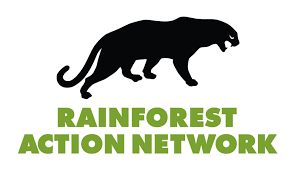Protesters Single Out Japan’s Largest Bank, Mitsubishi UFJ (MUFG)-Union Bank, During Global Climate Action Summit
Climate activists demand MUFG end financing of extreme fossil fuels and deforestation
San Francisco – Dozens of environmental and human rights advocates staged an action in downtown San Francisco today at the headquarters of Union Bank, the U.S. subsidiary of Mitsubishi UFJ Financial Group (MUFG), demanding that MUFG stop bankrolling climate change by committing to stop funding deforestation and extreme fossil fuels. MUFG is the largest bank in Japan and the fifth largest bank in the world. Today’s protest coincides with the Global Climate Action Summit (GCAS) and the PRI-in-Person conference, the world’s largest annual gathering of responsible investors hosted by the Principles for Responsible Investment (PRI).

“MUFG is massively bankrolling climate change through its financing of controversial tar sands pipelines, coal power around the world, and rainforest destruction,” said Hana Heineken with Rainforest Action Network (RAN). “Banks have a critical role to play in the transition to a zero-carbon future, but too many big banks are continuing to fund fossil fuels and deforestation, undermining achievement of the Paris Climate Agreement targets and the Sustainable Development Goals. MUFG took a bold first step this year by adopting social and environmental policies for its lending and underwriting, but it needs to do better.”
International campaigners are increasingly targeting the financial sector for its role in fueling the climate crisis, with Japanese banks in particular coming under scrutiny for their outsized regional role in supporting climate damaging industries. MUFG was targeted at its Annual General Meeting in June by 350.org.
MUFG is no stranger to controversy as it was among the leading financiers for construction of the Dakota Access Pipeline, which ignited the historic months long protests at Standing Rock and was condemned by UN representatives for disrespecting Indigenous rights. MUFG funds other fossil fuel infrastructure projects, including the controversial Keystone XL, Bayou Bridge, and Line 3 pipelines through their financing of pipeline companies Enbridge and TransCanada. According to a recent report Banking on Climate Change: Fossil Fuel Finance Report Card 2018, MUFG also finances coal power plants around the world and was the 5th largest coal power financier globally between 2015 and 2017.
MUFG is also a major financier of companies causing tropical deforestation and associated human rights abuses, according to research by RAN. The bank continues to finance palm oil giants like Indofood, that are destroying rainforests and exploiting workers and MUFG has plans to expand its business in Indonesia, risking increased exposure to deforestation and related human rights issues.
On May 15th this year, MUFG adopted its first ever comprehensive social and environmental safeguards for its corporate loans and underwriting, the first among the big three Japanese banks, but stopped short of committing to end its financing of climate destructive activities. Protesters point out that the bank continues to fund companies responsible for major social and environmental impacts and needs to both implement and strengthen its policies to ensure the bank is contributing toward a sustainable future.
MUFG’s new policy is available here, and the NGO response to the policy is here.
Rainforest Action Network runs hard-hitting campaigns to break North America’s fossil fuels addiction, protect endangered forests and Indigenous rights, and stop destructive investments around the world through education, grassroots organizing, and non-violent direct action. For more information, please visit: www.ran.org
